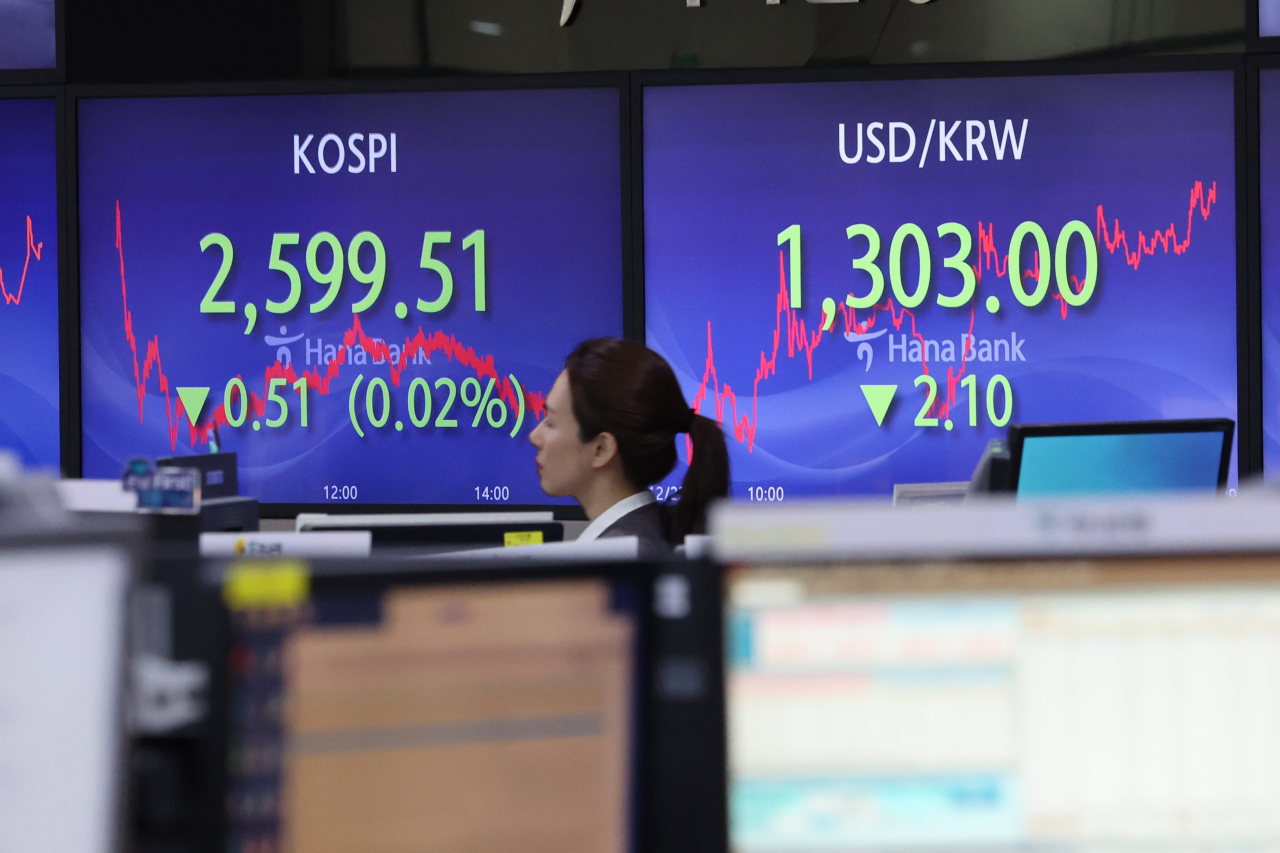Envisioned rules revision to reduce number of capital gains tax payers by 70%
By YonhapPublished : Dec. 24, 2023 - 17:12

The planned relaxation of rules on the capital gains tax is expected to reduce the number of large stockholders subject to the taxation by 70 percent, data showed Sunday, amid criticism it is a tax cut for the rich amid a fall in state revenue.
Last week, the finance ministry announced the decision to raise the capital gains tax threshold for shareholders from 1 billion won ($767,459) to 5 billion won in an effort to minimize year-end market volatility caused by investors' stock selling to avoid taxation.
Under the current regulation, those holding stocks worth more than 1 billion won or exceeding a certain proportion of a company's total ownership by year-end are categorized as large shareholders, and they are subject to the capital gains tax at a 20-25 percent rate.
As of end-2022, a total of 13,368 individuals owned shares worth more than 1 billion won, and the number of people whose stock value surpassed 5 billion won came to 4,161, according to the data compiled by the Korea Securities Depository and released by Rep. Yang Kyung-sook of the main opposition Democratic Party.
If the government eases the rule as planned, the number of people subject to the tax will fall 68.9 percent, according to the lawmaker.
The finance ministry has said that it will revise the enforcement ordinance of the Income Tax Act within this year, which will come into force Jan. 1, following the Cabinet's approval.
"The government has come up with a series of tax cuts for the rich despite a revenue shortfall. It rather needs to actively find new revenue sources to ensure financial soundness and to boost the social safety net," Yang said.
South Korea's tax revenue fell 50.4 trillion won during the first 10 months of 2023 from a year earlier, mainly due to weak corporate activities and the prolonged slump in the property market.
Easing the regulation was one of Yoon's main agenda items during the presidential election, but the ruling and opposition parties agreed last year to adjust the threshold after 2025.
The opposition side criticized the government for breaking the agreement, and some have said that the Yoon government is pushing for the measure to woo voters ahead of the April general elections. (Yonhap)




















